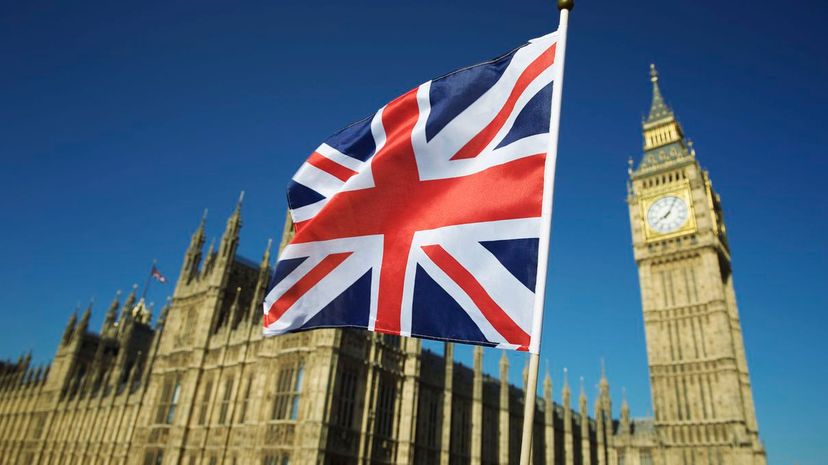
About This Quiz
England has a rich and storied history considering the British Isles were inhabited going back more than 800,000 years. From colorful and powerful rulers to modern-day politics, England gives us much to talk about it and it remains a powerful country.Â
Much of what we refer to as English history began after the Romans lost control of the area. To watch Netflix tell the story, modern-day England started with the rule of the Tudors, specifically Henry VIII and the rest of the clan in 1845. Henry VIII is most famous for having six wives but during his 36 year reign he implemented changes (including his separation from the Catholic church so he can divorce his first wife) that led to the Protestant Reformation. He's also the father of Queen Elizabeth I, considered one of England's greatest and most prominent rulers.Â
But beyond the country's famous royalty, how much do you know? Are you familiar with Hadrian's Wall? Can you explain the War of the Roses?Â
If you think you know all about the Tudors, English conflicts, and the events that made England the country it is today, take a stab at this quiz (but don't lose your head if you don't get them all right!).
Parliament wanted Mary to succeed James II, but she refused, so she and her husband William of Orange took the throne as co-rulers.
The House of Lancaster was symbolized by a red rose, and the Yorks by a white rose.
King Harold II was the last Anglo-Saxon king. William the Conqueror of Normandy took over after the Battle of Hastings.
Advertisement
Henry VIII's desire for a divorce started the ball rolling on his break with the Roman Catholic Church.
Elizabeth II, who was crowned in 1952, passed her great-great-grandmother for the record in 2015 with 65 years as queen.
Parliament leader Oliver Cromwell led a successful civil war against Charles I and installed himself as "lord protector" from 1653 until his death in 1659.
Advertisement
"The Iron Lady," Great Britain's first female prime minister, was a conservative. She was the leader of the Conservative Party from 1975 to 1990.
The Lancasters and Yorks were two branches of the ruling Plantagenets that fought for control of the throne. The Lancasters eventually won, and Henry VII became king.
The "Brexit" vote ended with 51.9 percent opting to leave the EU. The process has not yet been finalized.
Advertisement
Walpole is generally considered the first, serving roughly from 1721-1742.
England, Scotland and Wales were included in Great Britain, but Ireland stayed out until 1801. Then the name changed to United Kingdom of Great Britain and Ireland.
Henry III of England and Alexander II of Scotland signed the Treaty of York.
Advertisement
The Tories became the Conservative Party, and the Whigs became the Liberal Party, which declined and was basically replaced by the Labour Party.
In 1922, Ireland broke from the United Kingdom to form the Irish Free State. Northern Ireland stayed in the U.K.
Alice of Lancashire was not one of Henry's six wives.
Advertisement
Queen Victoria held the throne for 63 years (1837-1901), making her reign the second-longest in English history.
Things quickly fell apart after Oliver Cromwell's death, and his son held power very briefly.
Hadrian's Wall marked the northern edge of the Roman Empire. It extended about 75 miles (121 kilometers) from the North Sea to the Irish Sea.
Advertisement
Richard III ruled from 1483-1485
In 1605, authorities foiled the plans of a group of Catholics, including Guy Fawkes, that was plotting to blow up the House of Lords and assassinate King James I.
The bombing lasted eight months, from September 1940 to May 1941 and about 40,000 civilians were killed.
Advertisement
Caesar's army hit British shores in August of 55 B.C.E., but the Romans didn't conquer Britain until 43 C.E.
The Restoration period started in 1660. England, Scotland, and Wales were united as Great Britain by the 1707 Act of Union.
Roman rule over England lasted almost 400 years - they cleared out in 407 C.E.
Advertisement
Three suicide bombers hit the Underground, and a fourth blew up a bus.
The Hundred Years' War went a little overtime - it ended in 1453. (There were several periods of peace, though.)
The legendary prime minister won the Nobel Prize for literature in 1953 for his numerous memoirs and historical volumes.
Advertisement
Edwine is the only fake one on the list.
The U.K. and Ireland joined up on Jan. 1, 1973 after Charles de Gaulle's resignation in 1969.
The Black Death of 1348 was one of the worst pandemics ever; it killed up to 200 million people in Eurasia and peaking in Europe from 1347 to 1351.
Advertisement